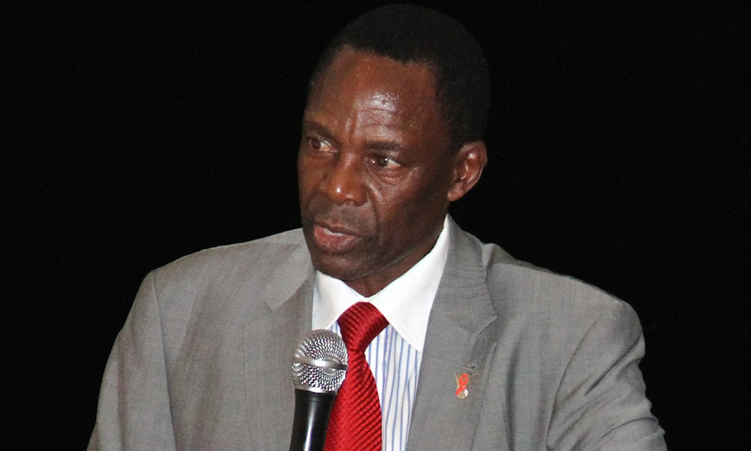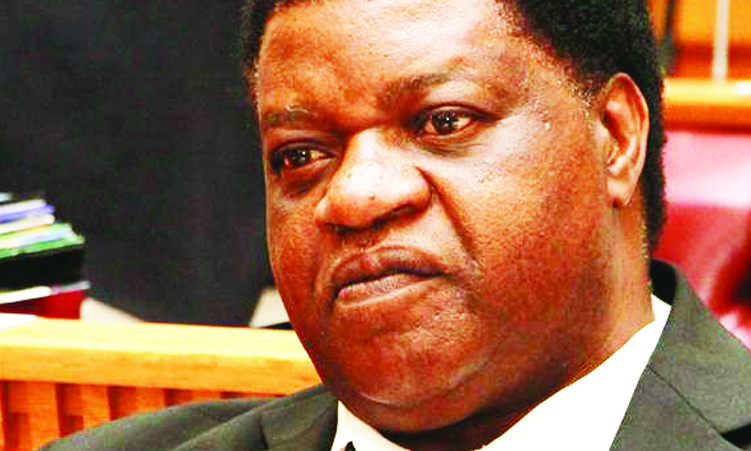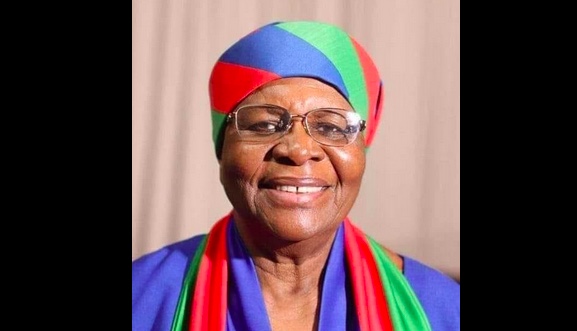Labour, industrial relations and employment creation minister Utoni Nujoma yesterday told The Namibian go to hell.
This was after the former land minister was questioned about being one of over 500 landowners fully exempted from paying land tax.
The government has exempted land taxes worth over N$2 million.
“Go to hell,” Nujoma said, without giving any other explanation.



Other prominent members of society who were exempted during the time period include Doris Wilke (N$71 185,23), Albertina Munomava and Lea Mupaine (N$64 566), Inge Hennes (N$61 256,87), Agnes Karumendu (N$51 262), and Aletta Muller (N$43 944).
The list also includes Nujoma (N$19 242,15), Popular Democratic Movement leader McHenry Venaani, Mike Kanjonokere and Claudina Venaani (N$25 720), former minister of health Richard Kamwi (N$43 322), business mogul Lazarus Jacobs (N$28 631), businessman Vetumbuavi Mungunda (N$48 375) and Monika and Sonja Thieme (N$31 465).
The granted land tax exemptions vary between N$25 to over N$20 000. The exemptions were given for the financial years starting from 2016/2017 to 2020/2021.
The Roman Catholic Church was exempted of N$605 583, which is one of the highest amounts exempted for its land across the country.
The list, which was gazetted last Tuesday, consists of 11 churches, five late estates and 566 individuals.
The Agricultural (Commercial) Land Reform Amendment Act allows the minister to exempt agricultural land owners when they meet certain requirements.
These requirements includes any agricultural land owner, but only if he or she is a person belonging to the category of persons contemplated in Article 23 of the Namibian Constitution.
These are previously disadvantaged Namibians due to past discriminatory laws or practices, or for the implementation of policies and programmes aimed at redressing social, economic, or educational imbalances.
Political analyst Erika Thomas says if the economical set up of these prominent figures are probed, it doesn’t justify their exemption.
“If you say those names are actually being indicated in that list and we know their economical set up, to me it’s not going to be really disadvantageous,” she says.
Thomas went on to say that some of these politicians were suggesting that they are also Namibians and they need to be part and parcel of the Namibian state.


“But if you look at it from a different perspective, then it goes back to ‘Animal Farm’. In ‘Animal Farm’ everybody is equal, but overnight the pigs actually change the rules, that no animals should drink milk and so on and so forth.
“But at the end of the day, because the pigs were now the smartest among the other animals, they changed the rules overnight and ended up saying that everybody is equal but some animals are more equal than others,” she says. Lawmaker Joseph Kauandenge believes this is “really a mockery” of those destitute members of society and that laws must be made to the benefit of impoverished members of society.
“There is a dire need to revisit this tax relief law and to assert what the intention was in the first instance for its promulgation,” he says.
Kauandenge says there cannot be a law that gives to or refunds those already well off at the expense of those who need tax relief.
“And the hypocrisy of some of those on that list is the fact that they really don’t need that tax relief. Safe to say if they were not selfish, they could have rejected such relief and asked the government to rather invest or pay it out to those who really need it,” he says.
Official opposition Venaani says the law is meant to redress the land injustices of pre-independence, thus black people automatically qualify for exemptions.
“It’s not Venaani going and lobbying for tax exemption. It is an automatic category that when a person is black, you are exempted from paying full land tax. Why? Because of the social imbalances of the past,” he says.
He says it has nothing to do with whether it is a judge or a leader. “It’s an automatic thing when you are buying a farm. When you are black and you never had a farm before, you are qualifying under affirmative action. It’s the laws of the country,” he says.
Venaani says people that are exempted from paying full tax are those that fall in three different categories.
“One, affirmative action. Two, women. Three, nonprofits. Now, the law when it was written in 1995, it was meant to be both an economic law and a social regulatory law,” he says. He says he has done nothing wrong by being exempted.
“There is no law that I transgressed by getting tax exempted. It’s the law that says I must be exempted. It’s not something that was an arrangement that was made for me or another person,” Venaani says.
Stay informed with The Namibian – your source for credible journalism. Get in-depth reporting and opinions for
only N$85 a month. Invest in journalism, invest in democracy –
Subscribe Now!






